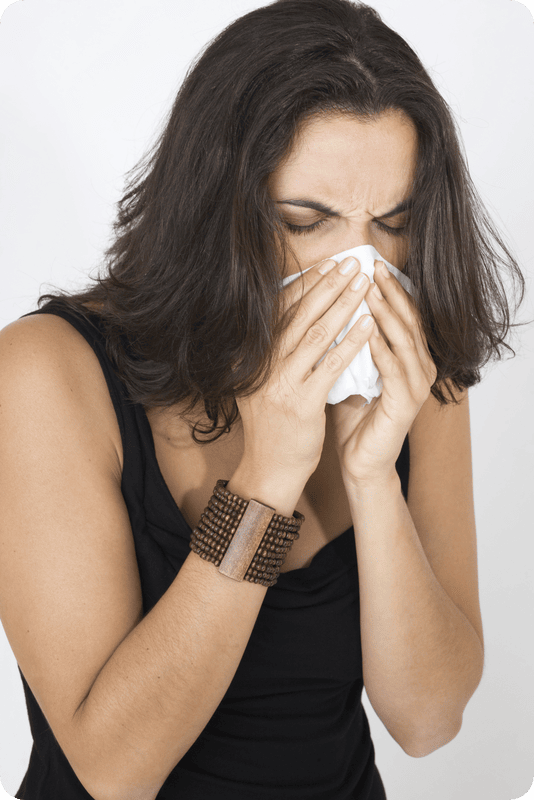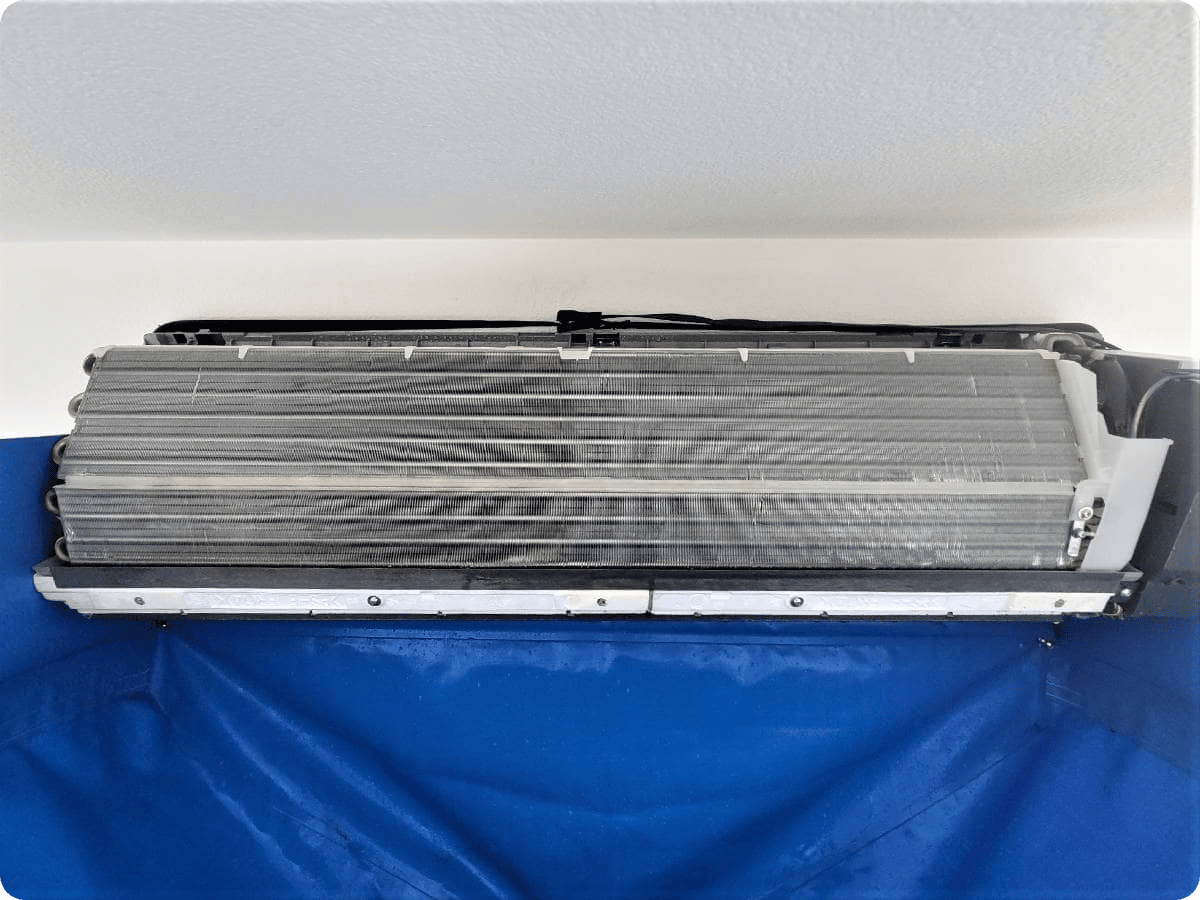Studies Show Mold Exposure Can Contribute To Depression And Anxiety
 When most people think of getting sick from mold exposure, they think about feeling nauseous or generally ill. Maybe trouble breathing or allergy symptoms.
When most people think of getting sick from mold exposure, they think about feeling nauseous or generally ill. Maybe trouble breathing or allergy symptoms.
They should also consider psychological problems like difficulty concentrating, anxiety, and even depression.
We’ve seen more and more studies showing the full range of adverse effects of mold exposure. The phrase “mold toxicity” comes up more and more, and it encompasses a wide range of physical, psychological, and neurological symptoms.
At the same time, there’s no clear consensus from the medical community on mold toxicity. Some experts say the facts prove it’s real. Others say it’s at worst an exaggeration. Or, at best (so to speak), really symptoms of various other mold- and indoor air quality-related issues.
Call it whatever you want. The bottom line is that the research shows links between prolonged exposure to mold and depression or anxiety. And that’s what we’re focussing on in this article.
We’ll explore each connection and examine the distinction between mold exposure and being allergic to it.
Finally, we’ll mention your heating and cooling system’s role, particularly if you have a mini split at home.
Can Mold Cause Depression?
A groundbreaking 2007 study from Brown University gives us the clearest links between mold and depression. Their research, published in the American Journal of Public Health, studied and verified what were previously anecdotal correlations between mold-related illnesses and damp, moldy homes. The results didn’t point to a silver bullet here: It’s not like mold spores in the body directly caused depression the way exposure to a flu virus gives you influenza. However, there is a physical component here: Mold exposure can trigger health problems, including asthma attacks, nausea, diarrhea, and headaches. Those “poor physical outcomes,” the theory says, are often associated with the onset of depression. Related: Can Mold Make You Tired? Then, there are psychological factors. The study notes that “Housing is inextricably linked to one’s perception of control.” In other words, feeling like you can’t control the condition of the place you live can result in emotional distress and depression. Related: Healthy Indoor Air Quality Is Crucial For People With Asthma These conditions don’t lead to depression for everyone, of course. But anyone with a history of mental health problems or poor physical health is more likely to experience mental health issues due to mold exposure.Can Mold Cause Anxiety?
The Brown studies also showed relations between mold exposure and anxiety. The triggers are mostly the same: lack of control over living conditions and poor physical health can trigger anxiety. And anxiety and depression aren’t the only symptoms associated with mold exposure and mold toxicity.According to Psychology Today, people also suffer from “brain fog” or difficulty concentrating and insomnia.
Related: What Is The Best Temperature To Prevent Mold In My Home?
Mold Toxicity Vs. Mold Allergy
 There’s a difference between mold toxicity and having a mold allergy, and it’s worth noting. In a nutshell, allergy symptoms are acute and alleviate quickly once you’re no longer exposed to the spores. Toxicity symptoms become chronic and are often the result of long-term exposure.
There’s a difference between mold toxicity and having a mold allergy, and it’s worth noting. In a nutshell, allergy symptoms are acute and alleviate quickly once you’re no longer exposed to the spores. Toxicity symptoms become chronic and are often the result of long-term exposure.
A mold allergy works the way seasonal allergies do: The immune systems in people who are allergic to mold overreacts to exposure. The results are symptoms like itchy eyes, coughs, throat irritation, and a runny nose.
But, those symptoms clear up quickly once the person is no longer round mold spores — the same way a person with a cat or pollen allergy will feel better once they’re not near any felines or pollen.
But, mold toxicity symptoms will not disappear once you’re no longer exposed to spores. They’re not necessarily permanent, but they are chronic and will take more work to treat and eliminate.
Related: 10 Early Warning Signs Of Mold Toxicity
Mold Risks In Homes With Ductless Mini Splits
We’re talking about mold, anxiety, and depression here because we’re all too familiar with how these relate to homes and businesses that use ductless mini splits for heating and cooling.
These systems are great for comfort and energy efficiency. But, they’re also especially prone to mold infestations and exposing people to mold spores in the air.
The dark, damp, and warm conditions inside air handlers make it easy for mold spores to cultivate into colonies quickly. Then, those tiny spores get blown back out of the system and into the air you breathe.
Related: How Mold In Your HVAC System Causes Biotoxin Illness
At the same, it’s difficult to clean out these systems. Until recently, the only way to do it is to have a professional take apart every handler and manually scrub every component and surface by hand,
It would take hours and hours, making it extremely expensive. And, even then, there’d be no guarantee it would work.
That’s why HydroKleen208 uses customized tools and non-toxic cleaners designed to eradicate all the junk that builds up in a mini split with a single, quick visit.
Here’s an example of the difference we can make. We took the photo below at a recent cleaning. We cleaned off half of the coil but left the other side dirty so the homeowner could see our progress.
You can see for yourself just how much dirt, mold, and microbial contamination builds up inside the system — and how well we can get rid of it:

If you’ve had a mini split in your Treasure Valley home for more than a year, then it’s time to consider a deep cleaning. It improves your indoor air quality (which keeps you healthy), helps the system run better (meaning better comfort), and increases its efficiency (reducing your electric bill).
Related: How Often Should A Mini Split Be Cleaned?
If you’re in Boise Metro or Valley County, give us a call at (208) 779-5596 or click below to reach us at HydroKleen208. You can schedule a mini split and heat pump cleaning or just ask some questions about our service or hour home’s indoor air quality in general.
